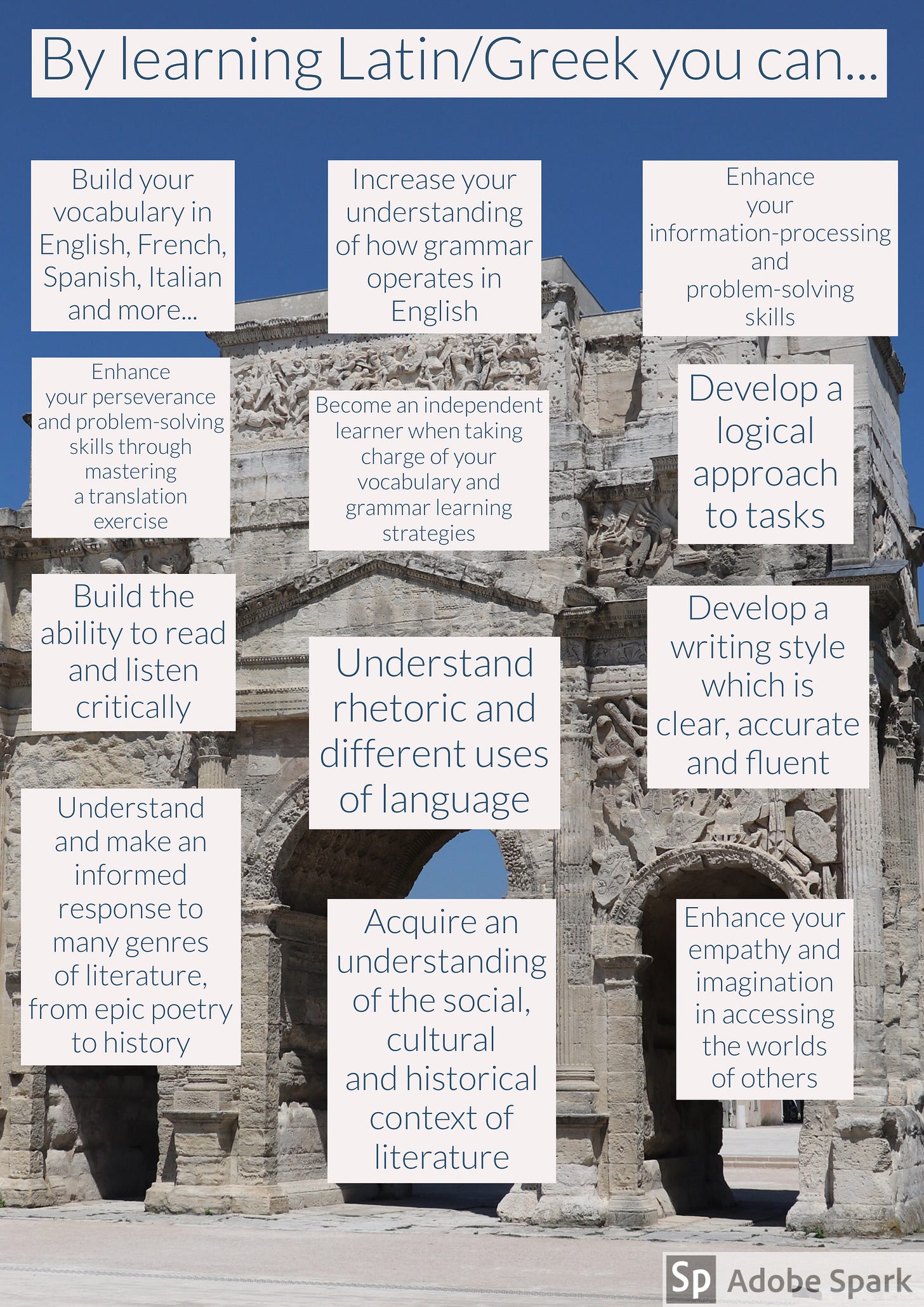The government has just announced the end of the funding for the Latin Excellence Programme, a scheme which supported classical education in non-selective maintained schools, to the tune of £4 million - a small amount for the government to save, but one which represents the loss of funding for the teaching of 5000 students.
I studied Latin in a maintained grammar school in the 1990s. I was the only one studying it at A-Level and have written to the school since to thank them for funding my studies. My Latin teacher, Geoff Taylor, inspired me to choose Classics for undergraduate study and make teaching Classics my career.
Although I haven’t worked in the maintained sector for a while, I thought the Latin Excellence Programme was an excellent direction for education funding to take.
I chose to study Latin in Year 8, gripped by the power of classical mythology and interested in learning a ‘dead’ (but immensely successful) language. From the start, I loved it. We studied the Cambridge Latin Course in its 3rd edition, complete with Caecilius and family living just before the eruption of Vesuvius in AD 79. I was immediately able to link my new Latin language to the French I’d started in Year 7 (l’equitation is horse-riding because equus = horse) and I met much of the grammar I’d learn in French A-Level in GCSE Latin first (the subjunctive). I loved the puzzle of unravelling a unseen passage of Ovidian poetry - working out which noun went with which adjective and why the verb ended in -ere. It was a great intellectual workout.
When I was Head of Classics, I drew up the following poster on transferable skills.
Latin supports learning in many different ways—from helping to develop a coherent and expressive writing style to building resilience and problem-solving skills when tackling a complex clause in unseen prose. My students also love seeing the links between Latin and modern European languages and understanding how languages work.
But I now think this overlooks the inherent joy in learning Latin—being able to translate Tacitus's biting commentary on the emperor Nero and his relationship with his mother, Virgil’s poetry telling the doomed love of the Carthaginian queen Dido, and the horrors of Livy’s battlefields at Trasimene and Cannae—all texts I studied at GCSE and A-Level.
I love Natalie Haynes’ series ‘Natalie Haynes Stands Up For The Classics’ which showcases all the fascinating, quirky, challenging elements of the ancient world. It saddens me that 5000 students who have just begun their journey into the world of the Romans will have it cut short at a time when classical culture is enjoying a renaissance, whether it’s the feminist retellings of Greek myths or Gladiator 2 at the cinema.
I will increase my donation to the charity Classics For All, which does much to support the learning of classical subjects in maintained schools.
You can also sign this petition.




